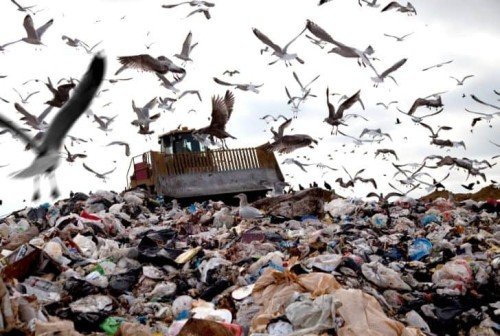
Ecology problems have become one of the most pressing issues facing our world today. The earth's delicate balance is being disturbed by human activities such as deforestation, overfishing, pollution, and global warming, among others. In this blog post, we will discuss some of the most pressing ecology problems in the world today.
Climate Change
Climate change is the most pressing environmental problem facing our planet today. It is caused by the release of greenhouse gases, primarily carbon dioxide, into the atmosphere from burning fossil fuels. The effects of climate change include rising sea levels, more frequent and severe weather events, and loss of biodiversity.
Climate change is a global phenomenon that refers to the long-term changes in the Earth's climate system, including changes in temperature, precipitation, and extreme weather events. The primary cause of climate change is the increase in greenhouse gas concentrations in the atmosphere, primarily carbon dioxide, methane, and nitrous oxide, which trap heat and contribute to a warming planet.
The consequences of climate change are already being felt worldwide, including rising sea levels, melting glaciers and ice caps, more frequent and severe heatwaves, droughts, floods, and storms. These changes have a significant impact on human societies and ecosystems, including food and water security, health, and biodiversity loss.
To address climate change, there is a need for a collective effort from individuals, businesses, governments, and international organizations. Some of the key solutions to mitigate climate change include:
-
Reducing greenhouse gas emissions: This can be achieved by transitioning to renewable energy sources, improving energy efficiency, and reducing waste.
-
Conserving natural resources: This includes protecting forests, wetlands, and other natural ecosystems that can absorb and store carbon.
-
In conclusion, climate change is a significant challenge facing the world today, and urgent action is needed to address its consequences. By working together, we can create a sustainable future for ourselves and for future generations.
-
Adopting sustainable practices: Such as reducing meat consumption, promoting public transportation, and using green building materials.
-
Supporting policies and international agreements: Governments can enact policies to reduce emissions, promote renewable energy, and support climate action. The Paris Agreement is an international treaty aimed at limiting global warming to well below 2 degrees Celsius.
Deforestation
Deforestation is the permanent destruction of forests and woodlands, primarily for human activities such as agriculture, mining, and urbanization. Deforestation contributes to climate change by releasing carbon into the atmosphere and reducing the earth's capacity to absorb carbon. It also has severe consequences for biodiversity, as many species depend on forests for their survival.
Deforestation is the permanent destruction of forests and woodlands, primarily for human activities such as agriculture, mining, and urbanization. Deforestation contributes to climate change by releasing carbon into the atmosphere and reducing the earth's capacity to absorb carbon. It also has severe consequences for biodiversity, as many species depend on forests for their survival.
The effects of deforestation are widespread and significant. Trees absorb carbon dioxide, and when they are cut down, the carbon stored in them is released into the atmosphere, contributing to global warming. Deforestation also disrupts the water cycle, reducing the amount of rainfall and leading to drought in some regions. Additionally, deforestation contributes to soil erosion, which can have severe consequences for agricultural productivity and food security.
Deforestation also has severe consequences for biodiversity. Forests are home to millions of plant and animal species, and when they are destroyed, many of these species are threatened or driven to extinction. Deforestation also reduces the genetic diversity of plant and animal populations, which can lead to lower resilience to diseases and climate change.
To address deforestation, there is a need for a collective effort from individuals, businesses, governments, and international organizations. Some of the key solutions to mitigate deforestation include:
-
Promoting sustainable forest management: This includes practices such as reducing clear-cutting, promoting reforestation and afforestation, and supporting forest conservation.
-
Encouraging sustainable agriculture: This includes promoting agroforestry practices, such as intercropping, that combine trees and crops on the same land, reducing the need for forest clearance.
-
Supporting alternative livelihoods: Providing alternative sources of income for forest-dependent communities, such as ecotourism and non-timber forest products, can help reduce the pressure on forests for economic reasons.
-
Enforcing laws and regulations: Governments can enact laws and regulations to protect forests and penalize those who engage in illegal deforestation activities.
In conclusion, deforestation is a severe problem with significant impacts on the environment, biodiversity, and human societies. It is up to all of us to take action to address this problem and protect our forests for future generations.
Water Pollution
Water pollution is the contamination of water bodies, such as rivers, lakes, and oceans, with chemicals, plastics, and other waste products. It has severe consequences for aquatic life and can also affect human health through the consumption of contaminated water.
Plastic Pollution
Plastic pollution is a growing problem worldwide, with millions of tons of plastic waste entering the oceans every year. It has severe consequences for marine life, as many animals mistake plastic for food, leading to injury or death. Plastic pollution also contributes to climate change by releasing greenhouse gases during the manufacturing and disposal of plastic products.
Overfishing
Overfishing is the practice of catching more fish than can be replenished by natural reproduction. It has severe consequences for marine ecosystems, as it can lead to the collapse of fish populations and loss of biodiversity. Overfishing also affects human populations that depend on fish for food and livelihoods.
In conclusion, ecology problems are some of the most pressing issues facing our planet today. It is up to all of us to take action to address these problems and preserve the earth's delicate balance for future generations. We must take individual responsibility for reducing our carbon footprint, conserving natural resources, and supporting policies that protect the environment.








